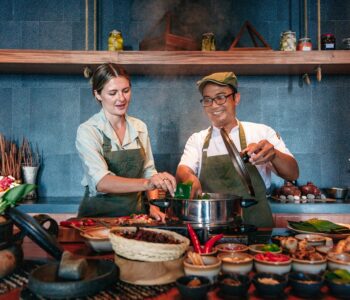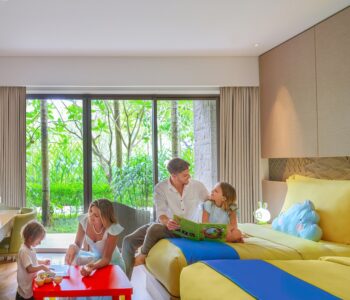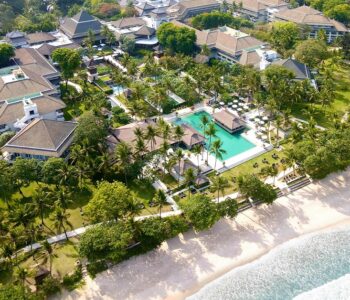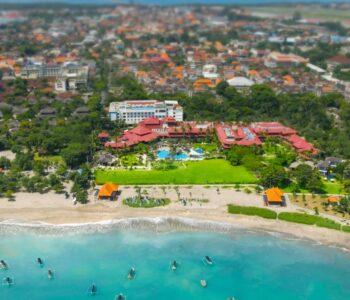Returning to an emerging travel destination after a gap of a few years can often be a cause for disappointment. With the rush of unfettered development so often destroying the magic that makes a destination special, transforming it from pristine beauty to a tangled polluted mess, I wondered how much Sumba had changed since my first visit to the island. Would the lure of the tourist dollar have changed it forever or would the island’s wild nature and remote location have kept it off the radar?

Getting to the island is certainly less difficult – there are now regular flights from Denpasar, making it much easier to hop over for a few days to explore. From what I witnessed on a recent visit, thankfully not much else has changed.
Alighting from the sole plane on the dusty runway, I was relieved that the stark difference between Sumba and more populous islands like Java and Bali still hits you the moment you emerge from the cabin. The airport terminal at Tambolaka may be slightly bigger than before but the feeling that you’ve arrived somewhere new, exciting and virtually unchartered still remains.

On first impressions, the opposite seems to be true. As I left the proud new terminal, I was met by one of the resort’s fleet of converted open-air land cruisers, a vehicle more associated with an African safari than a tropical getaway. It’s the perfect taster for what will follow – Sumba’s landscape and culture is in many ways closer to the arid African bush than her verdant tropical neighbours to the west.

The traditional villages in Sumba are built on high ground, making it easier to defend attacks from enemy villages. In an island where headhunting and bloody wars are not such a distant memory, the position of a village was very important to its survival. Although attacks no longer occur, the island’s annual Pasola festival reveals the population’s continued skills at warfare. Here rival villages compete in a frenzied horseback battle, staged to appease animist gods while sacrificing blood to ensure a fruitful harvest. Part of Sumba’s ancient Marapu religion, this is just one in a series of rituals, sacrifices and festivals that fill the Sumbanese calendar.

Apart from the joys of surfing an un-crowded wave – a maximum of ten surfers are allowed out at one time – there is world-class diving and fishing literally on your door-step, especially if you stay at Nihiwatu. For snorkeling, you can simply swim off shore to a reef teeming with marine life or jump in a dinghy to explore nearby sites. Other watersports include paddle-boarding, jet-skiing and even horse-powered wakeboarding along the beach. With expert tuition on-hand from Nihiwatu’s team of sport professionals, you don’t need to be an expert to enjoy these natural wonders. Apart from surfing and diving lessons, you can also polish your riding skills at the resort’s impressive Sandalwood Stables. Here both beginners and expert riders have the opportunity to explore the surrounding countryside on a horseback safari or end the day on a sunset ride along the sand.

Nihiwatu has recently launched its Spa Safari, where you trek from the hotel to a nearby village and then continue on to a coastal spa pavilion at Nihioka, perched on a cliff and surrounded by lush greenery. Here you are treated to fresh coconuts, healthy meals and unlimited treatments throughout the day in an area of outstanding natural beauty.
HOW TO GET THERE
Getting in to Sumba is not that difficult, for there are regular flights from Denpasar such as on Garuda Indonesia (www.garuda-indonesia.com).
WHERE TO SLEEP
Currently buzzing as an alternative holiday destination, accommodations in Sumba range from the upscale retreat to very basic hostels. Located above a perfect stretch of sand, almost hidden in its surrounding rich vegetation, the upscale Nihiwatu blends seamlessly into the landscape. Offering a wide choice of accommodation, from palatial one-bedroom villas to an enormous five-bedroom estate, the resort can sleep up to 80 guests (www.nihiwatu.com, Bali reservations call +62361 757 149).
WHERE TO EAT
Aside from hotel restaurants dishing up familiar western and comfort food, dining opportunities in Sumba are quite limited. You can always try the local eateries (generally safe); these places normally offer goat, pork, chicken and fish.






